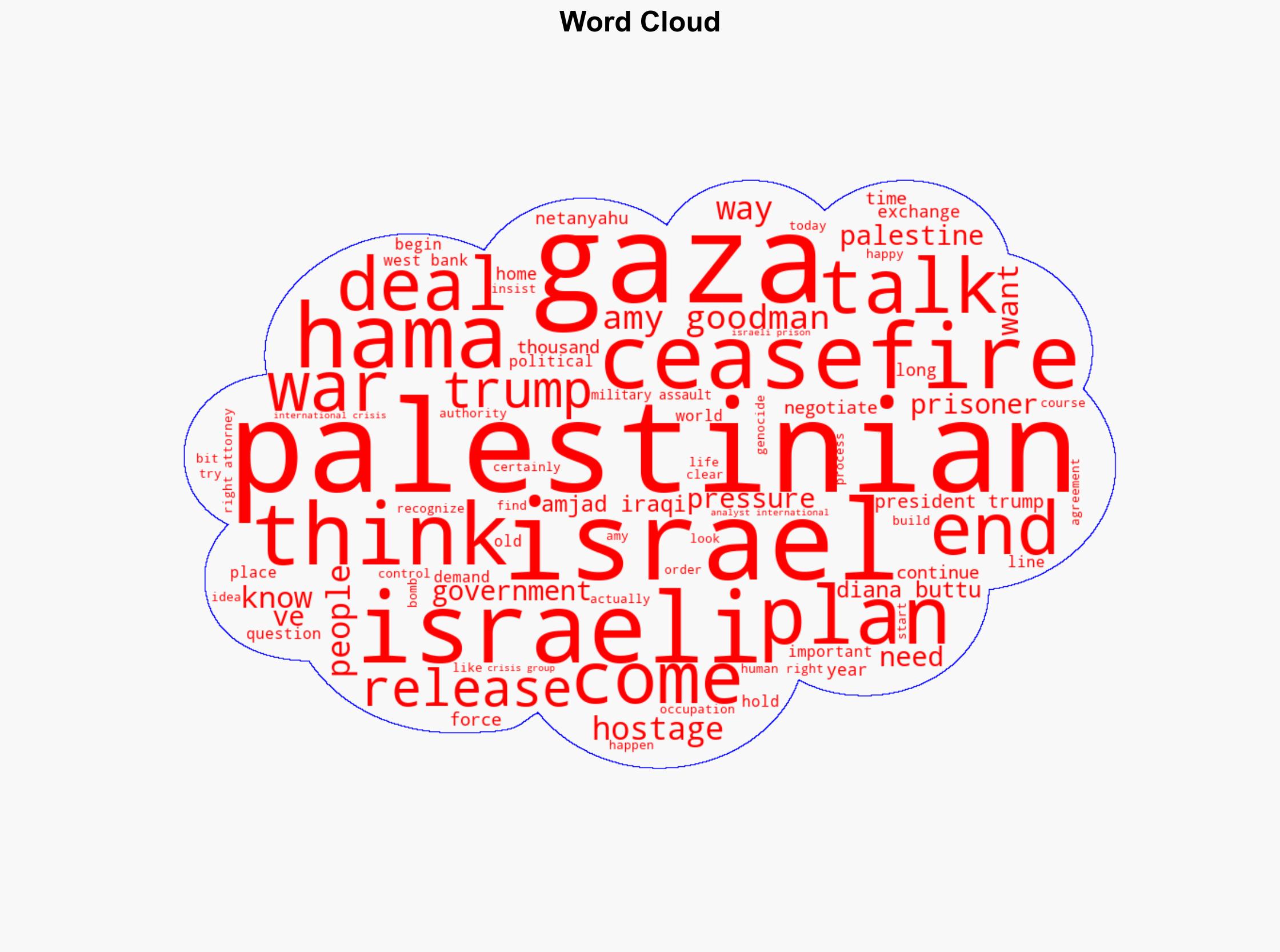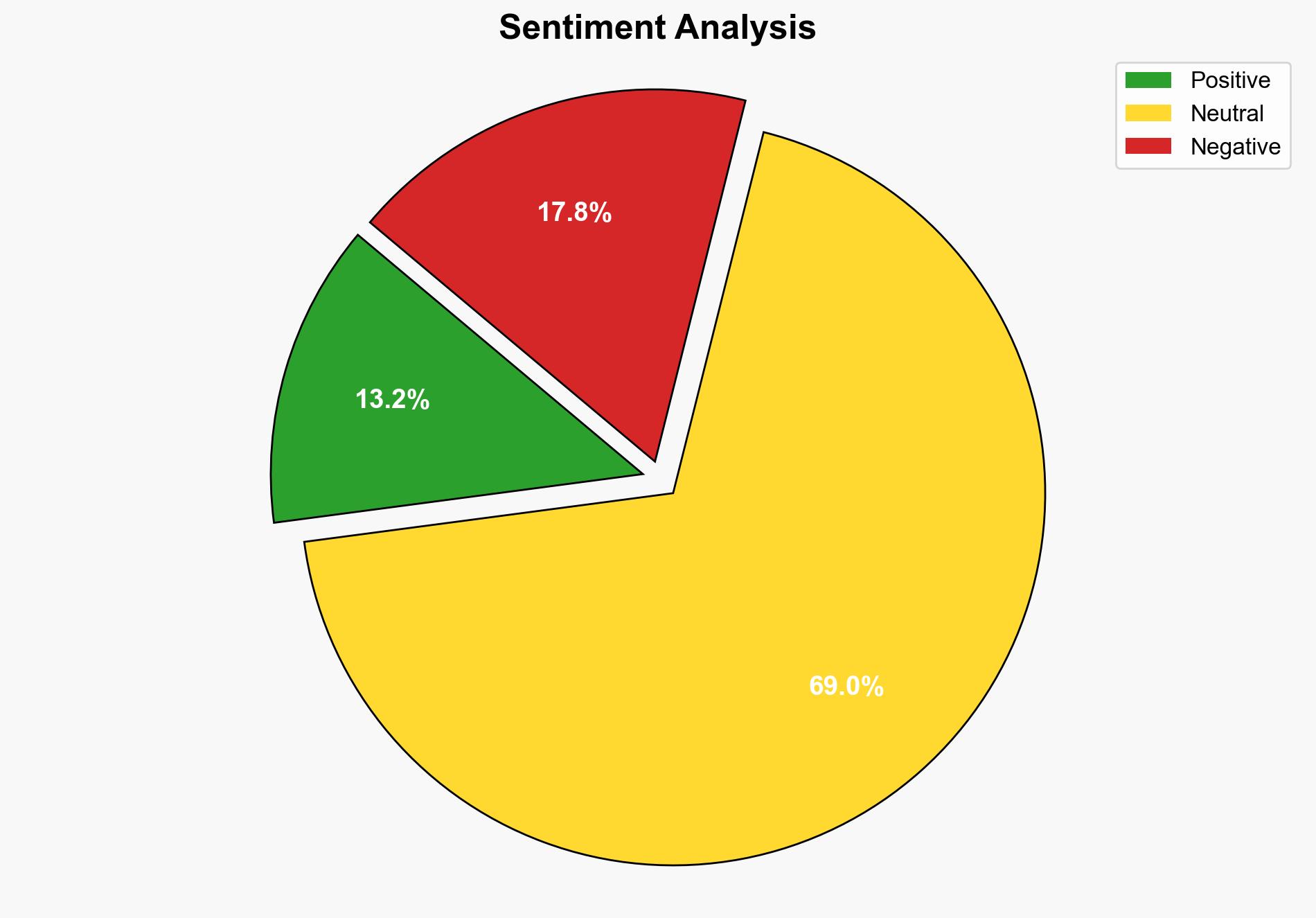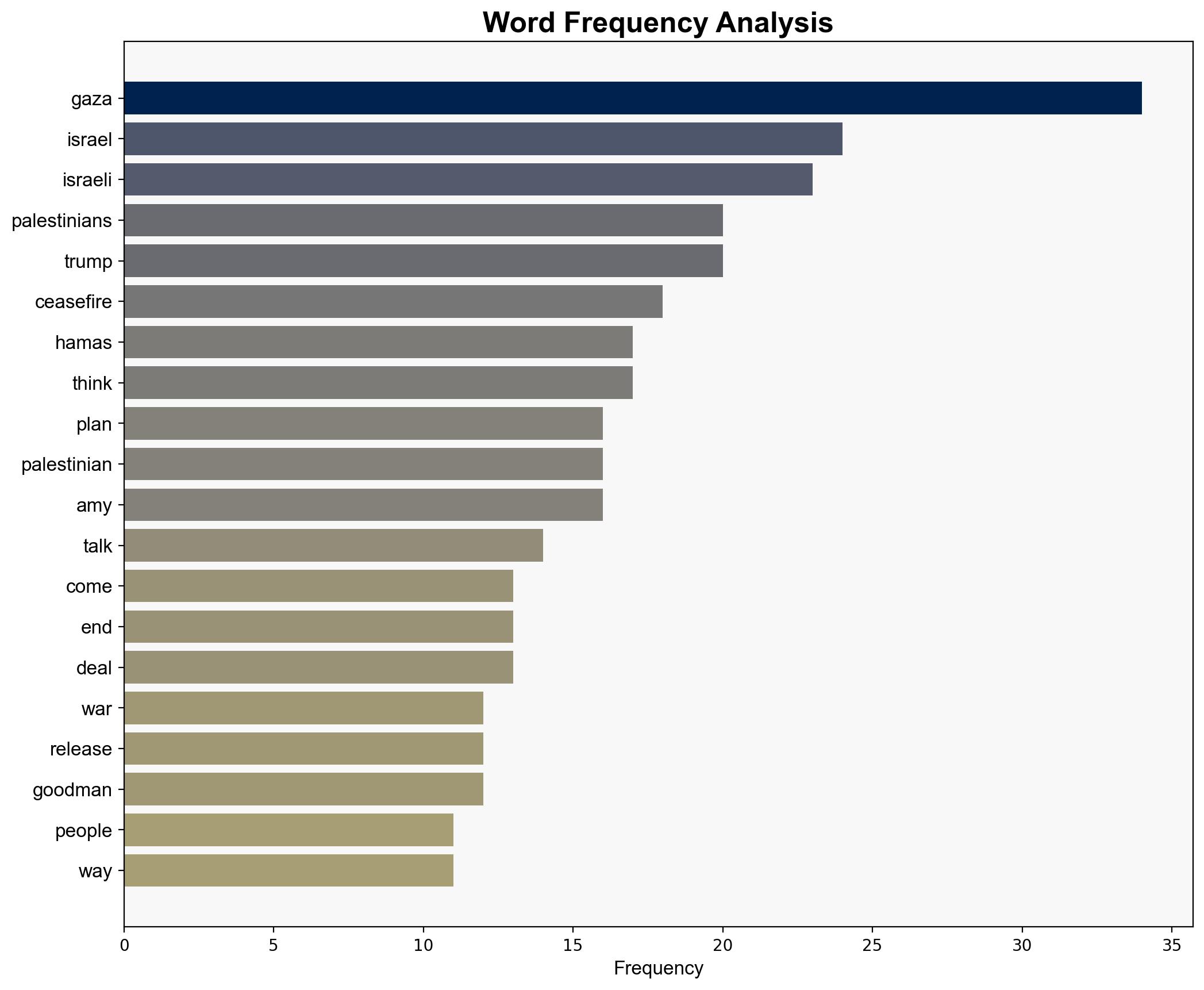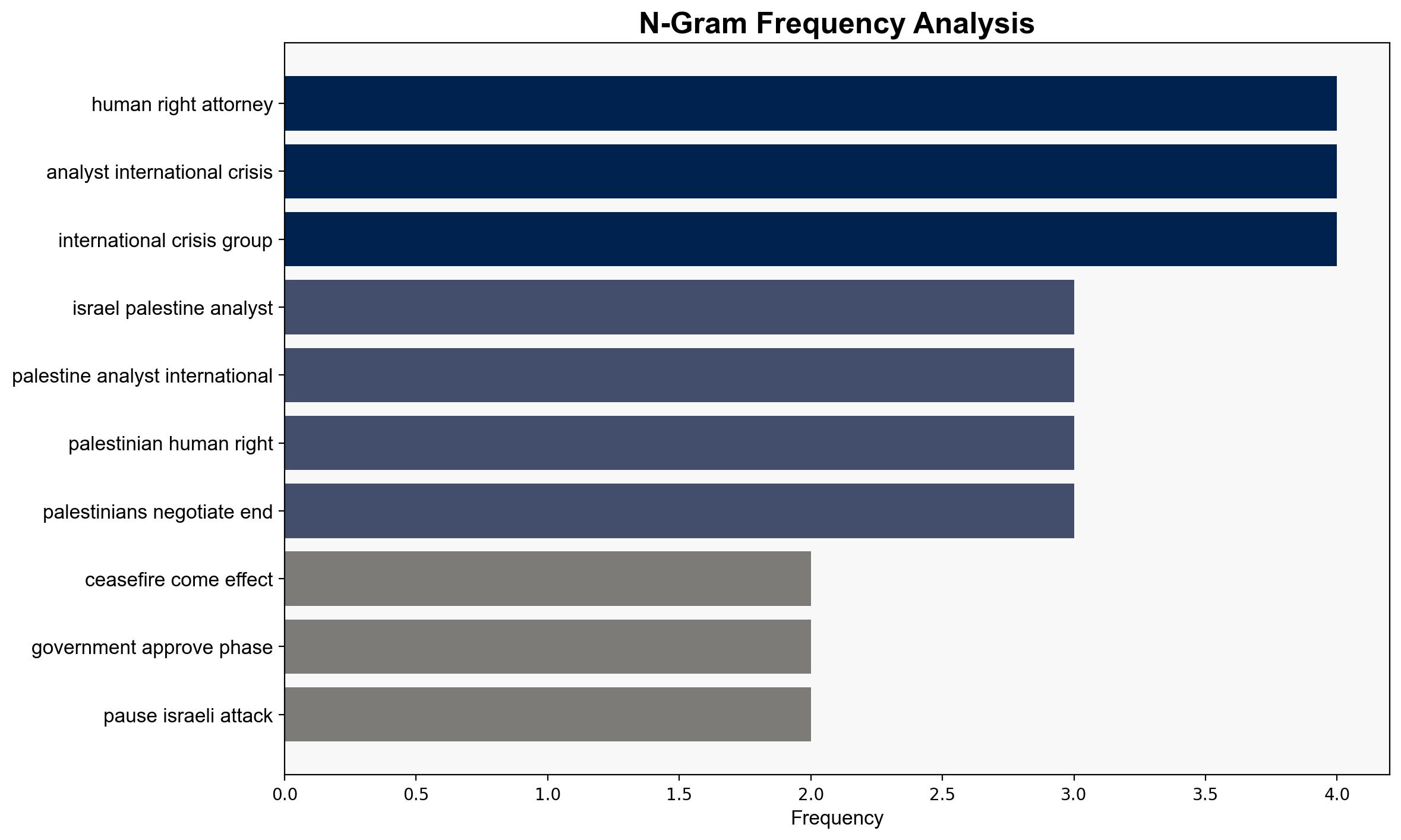After Gaza Ceasefire Massive Political Pressure Needed to Prevent Israel from Restarting the War – Democracy Now!
Published on: 2025-10-10
Intelligence Report: After Gaza Ceasefire Massive Political Pressure Needed to Prevent Israel from Restarting the War – Democracy Now!
1. BLUF (Bottom Line Up Front)
The most supported hypothesis is that the ceasefire between Israel and Hamas is fragile and contingent on significant political pressure and international oversight to prevent a resurgence of hostilities. Confidence level: Moderate. Recommended action: Enhance diplomatic engagement and international monitoring to ensure compliance with the ceasefire terms and address underlying grievances.
2. Competing Hypotheses
1. **Hypothesis A**: The ceasefire will hold due to international diplomatic pressure and humanitarian needs, leading to a longer-term peace process.
– **Supporting Evidence**: The involvement of international actors, such as the United Nations, in coordinating humanitarian aid and the presence of a phased withdrawal plan suggest a structured approach to maintaining peace.
2. **Hypothesis B**: The ceasefire is temporary, and hostilities will resume due to unresolved political tensions and lack of trust between parties.
– **Supporting Evidence**: Historical patterns of ceasefire violations, ongoing military presence, and political rhetoric from both sides indicate a high potential for conflict resumption.
Using ACH 2.0, Hypothesis B is better supported due to the persistent underlying tensions and historical precedents of ceasefire breakdowns.
3. Key Assumptions and Red Flags
– **Assumptions**:
– International actors will maintain pressure on both parties to adhere to the ceasefire.
– Humanitarian aid will effectively reach the affected populations.
– **Red Flags**:
– Any unilateral military actions by either party could trigger a breakdown.
– Political statements or actions undermining the ceasefire agreement.
– **Blind Spots**:
– Potential internal political shifts within Israel or Hamas that could alter their commitment to the ceasefire.
4. Implications and Strategic Risks
– **Implications**: A breakdown of the ceasefire could lead to a humanitarian crisis, increased regional instability, and potential international intervention.
– **Strategic Risks**: Escalation into broader regional conflict, disruption of global diplomatic efforts, and potential economic impacts from prolonged instability.
5. Recommendations and Outlook
- Enhance international monitoring and verification mechanisms to ensure compliance with the ceasefire.
- Facilitate dialogue between Israel and Hamas to address core issues and build trust.
- Scenario-based projections:
- Best Case: Sustained ceasefire leads to peace negotiations and regional stability.
- Worst Case: Ceasefire collapses, leading to renewed conflict and humanitarian disaster.
- Most Likely: Intermittent violations with ongoing diplomatic efforts to maintain the ceasefire.
6. Key Individuals and Entities
– Diana Buttu
– Amjad Iraqi
– Benjamin Netanyahu
– Khalil al-Hayya
– Marwan Barghouti
– Donald Trump
7. Thematic Tags
national security threats, regional focus, conflict resolution, humanitarian intervention





